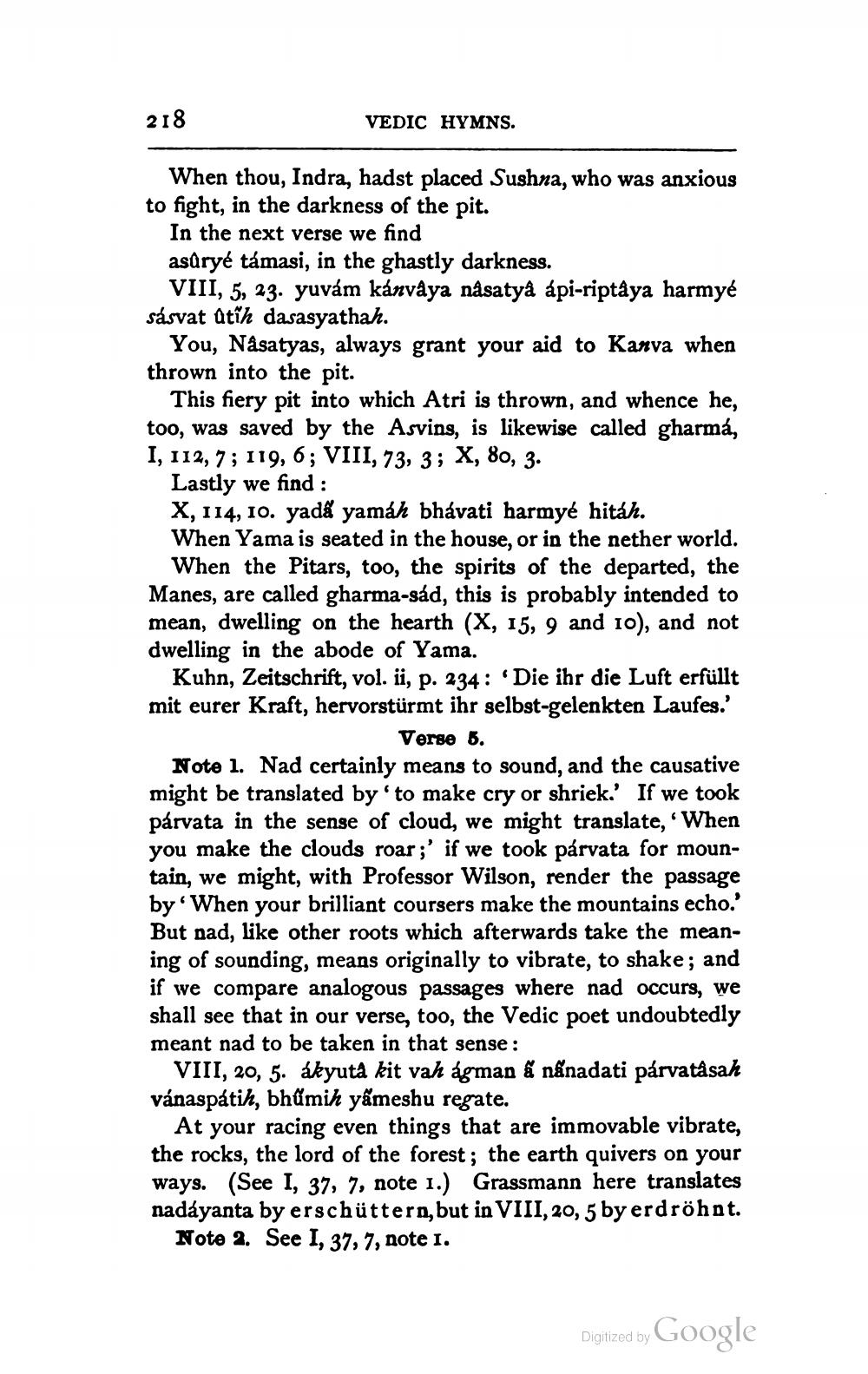________________
218
VEDIC HYMNS.
When thou, Indra, hadst placed Sushna, who was anxious to fight, in the darkness of the pit.
In the next verse we find asûrye támasi, in the ghastly darkness.
VIII, 5, 23. yuvám kánvâya nåsatya ápi-riptâya harmyé sásvat atih dasasyathah.
You, Nåsatyas, always grant your aid to Kanva when thrown into the pit.
This fiery pit into which Atri is thrown, and whence he, too, was saved by the Asvins, is likewise called gharma, I, 112, 7; 119, 6; VIII, 73, 3; X, 80, 3. Lastly we find : X, 114, 10. yadå yamáh bhávati harmyé hitáh. When Yama is seated in the house, or in the nether world.
When the Pitars, too, the spirits of the departed, the Manes, are called gharma-sád, this is probably intended to mean, dwelling on the hearth (X, 15, 9 and 10), and not dwelling in the abode of Yama.
Kuhn, Zeitschrift, vol. ii, p. 234: "Die ihr die Luft erfüllt mit eurer Kraft, hervorstürmt ihr selbst-gelenkten Laufes.'
Verse 6. Note 1. Nad certainly means to sound, and the causative might be translated by to make cry or shriek.' If we took párvata in the sense of cloud, we might translate, 'When you make the clouds roar;' if we took párvata for mountain, we might, with Professor Wilson, render the passage by When your brilliant coursers make the mountains echo.' But nad, like other roots which afterwards take the meaning of sounding, means originally to vibrate, to shake; and if we compare analogous passages where nad occurs, we shall see that in our verse, too, the Vedic poet undoubtedly meant nad to be taken in that sense :
VIII, 20, 5. ákyuta kit vah &gman á nánadati párvatásah vánaspatih, bhūmih yameshu regate.
At your racing even things that are immovable vibrate, the rocks, the lord of the forest; the earth quivers on your ways. (See I, 37, 7, note 1.) Grassmann here translates nadáyanta by erschüttern, but in VIII, 20, 5 by erdröhnt.
Note 2. See I, 37, 7, note i.
Digitized by
Digized by Google




